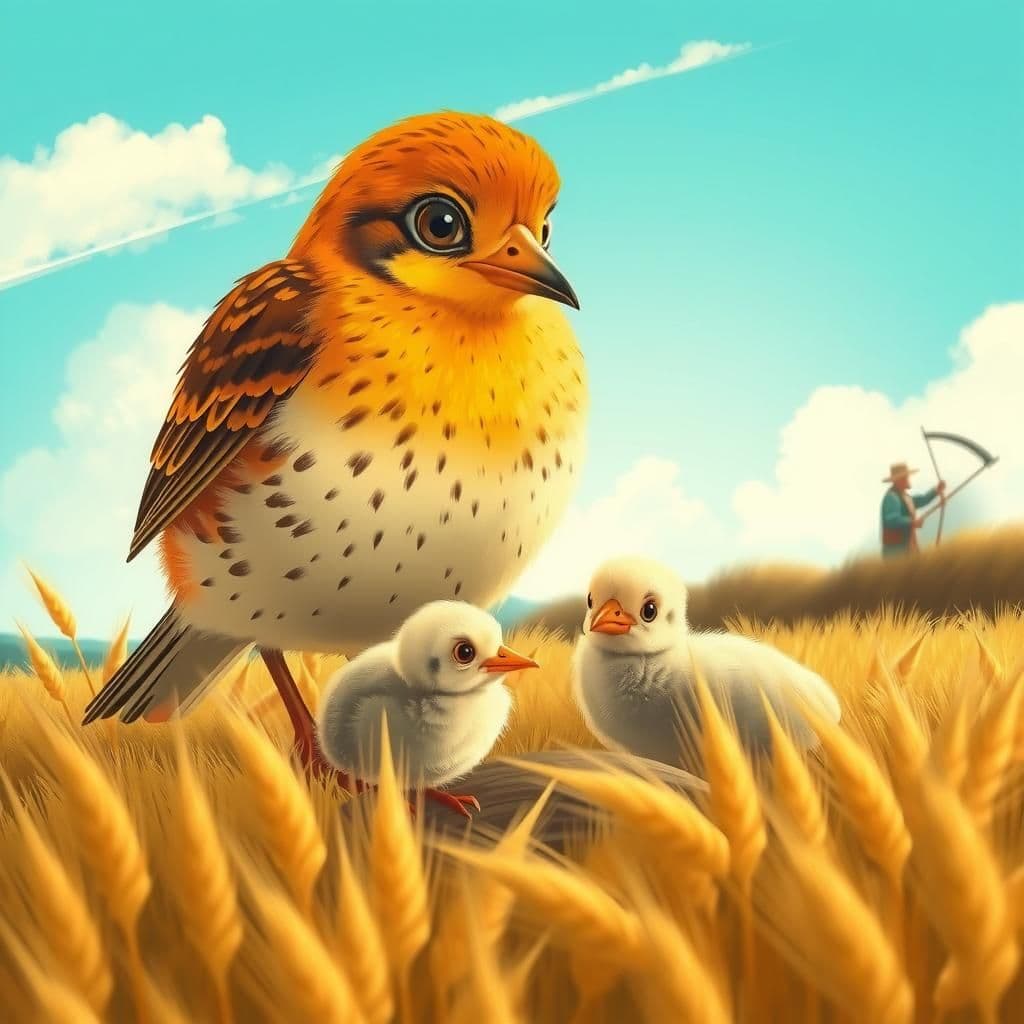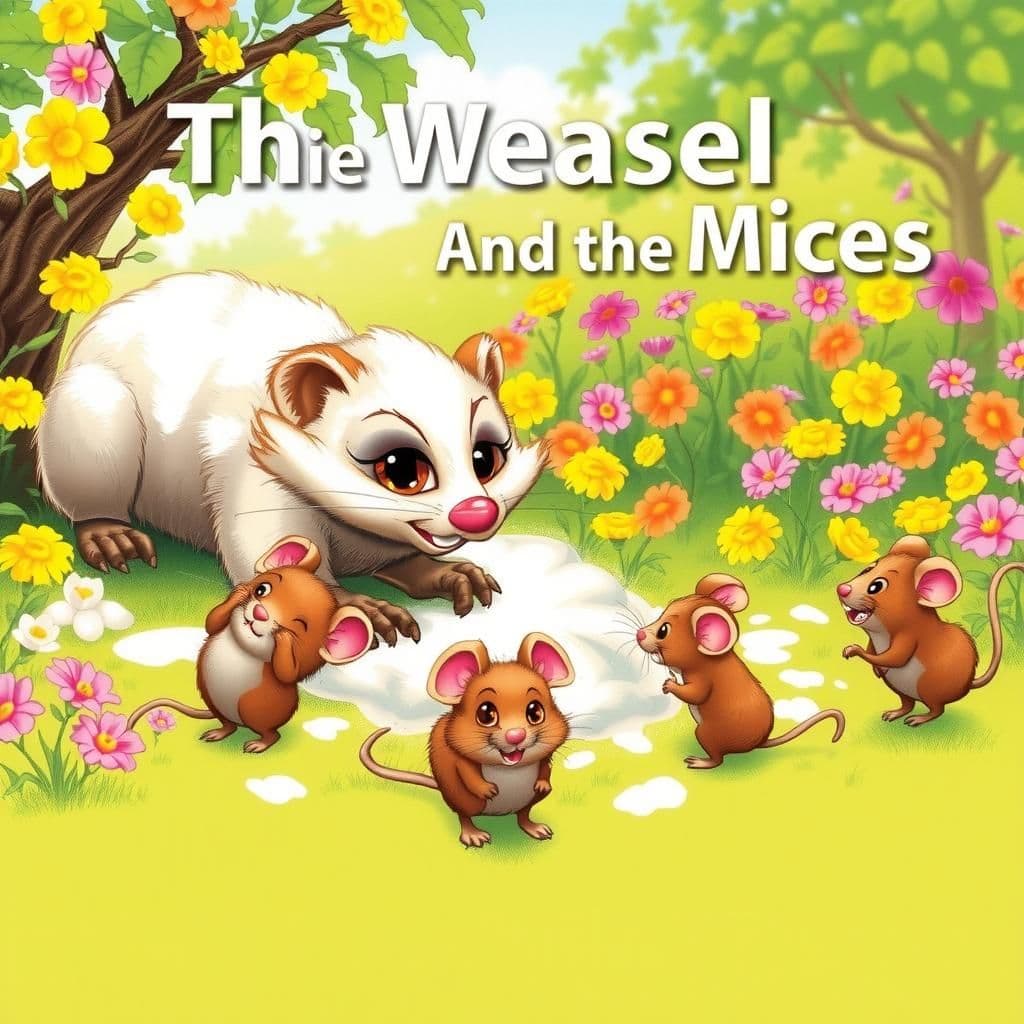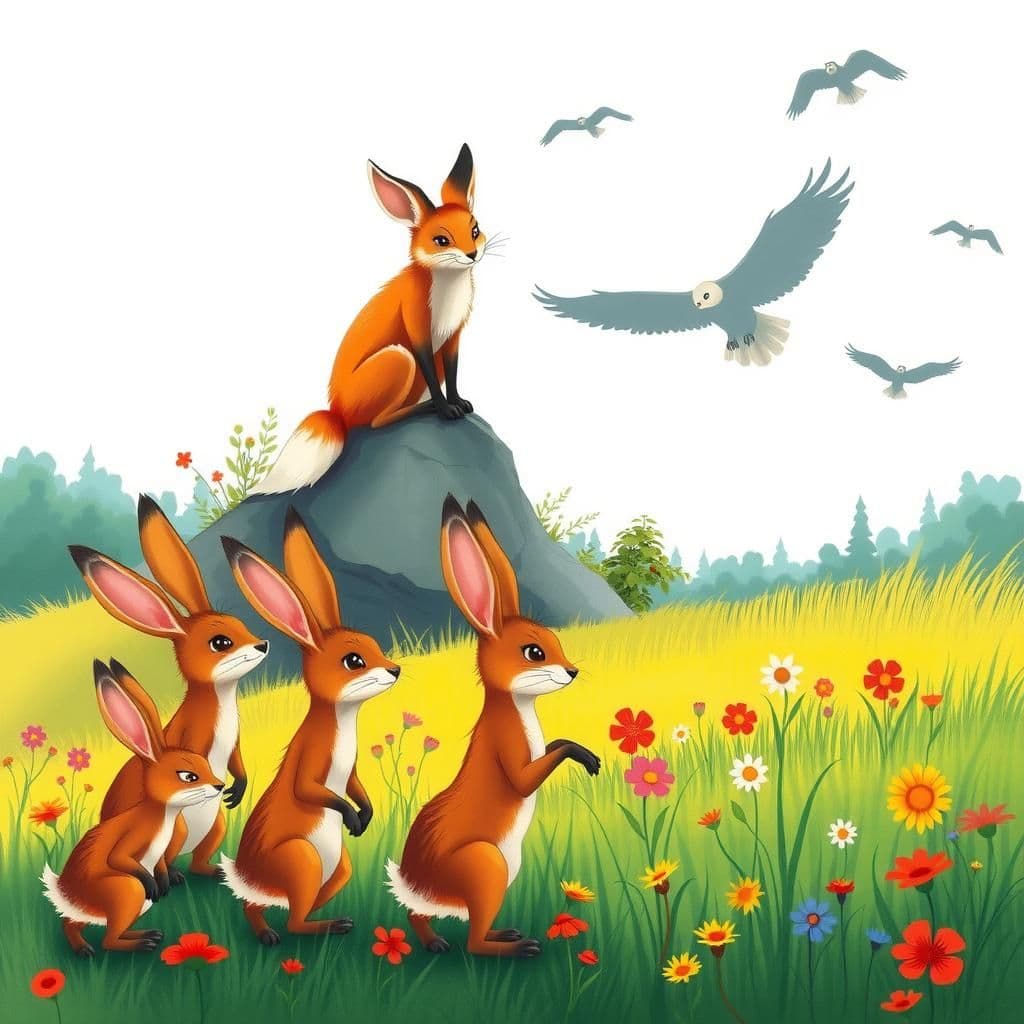The Lark and Her Young Ones
In this entertaining moral story, a Lark and her chicks learn the importance of self-reliance when the owner of their wheat field decides to harvest himself instead of relying on neighbors. Initially unconcerned, the mother Lark realizes the seriousness of the situation and prepares to move her young ones to safety, illustrating the life-lesson that self-help is the best help. This fable exemplifies the valuable lessons learned from stories that emphasize the importance of taking initiative in challenging times.

Reveal Moral
"Self-reliance and initiative are essential for achieving one's goals."
You May Also Like

The Weasel and the Mice
In this simple short story with moral lessons, an old weasel, unable to catch mice due to his age, disguises himself in flour to deceive unsuspecting prey. As several mice fall victim to his trap, an experienced mouse recognizes the ruse and warns others, wishing that the weasel's deceit is matched by his own success. This meaningful story illustrates the consequences of trickery and the wisdom of those who have survived many dangers.

The Geese and the Cranes
In the well-known moral story "The Geese and the Cranes," a birdcatcher attempts to ensnare both birds in a meadow. The agile cranes swiftly escape, showcasing their lightness, while the slower, heavier geese are caught in the nets. This short and sweet moral story illustrates the importance of agility and quick thinking in the face of danger.

The Hares and the Foxes
In "The Hares and the Foxes," a tale from the realm of unique moral stories, the Hares seek help from the Foxes in their conflict with the Eagles. The Foxes advise the Hares to carefully consider the consequences of their alliances, imparting a simple lesson from stories about the importance of understanding the risks involved before committing to a fight. This quick moral story highlights the value of caution and the lessons learned from the choices we make.
Quick Facts
- Age Group
- kidschildrenstory for class 2story for class 3story for class 4story for class 5story for class 6
- Theme
- self-reliancecautionthe importance of action
- Characters
- Larkyoung Larksowner of the fieldlaborersreapers
Subscribe to Daily Stories
Get a new moral story in your inbox every day.